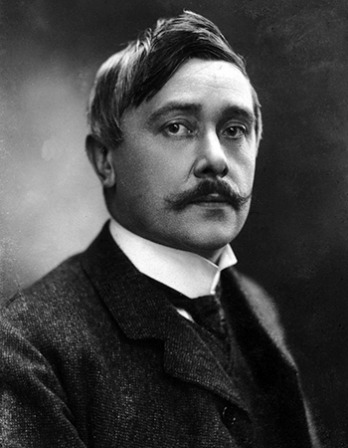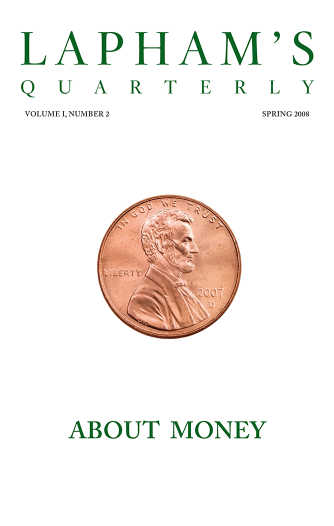People revere the Constitution yet know so little about it—and that goes for some of my fellow senators.
—Robert Byrd, 2005Corporations Are People Too
Anthony Kennedy on the rights of citizens.
The First Amendment provides that “Congress shall make no law…abridging the freedom of speech.” Laws enacted to control or suppress speech may operate at different points in the speech process.
The law before us is an outright ban, backed by criminal sanctions. Section 441b of the Bipartisan Campaign Reform Act of 2002 makes it a felony for all corporations—including nonprofit advocacy corporations—either to expressly advocate the election or defeat of candidates or to broadcast electioneering communications within thirty days of a primary election and sixty days of a general election. Thus, the following acts would all be felonies under §441b: the Sierra Club runs an ad within the crucial phase of sixty days before the general election that exhorts the public to disapprove of a congressman who favors logging in national forests; the National Rifle Association publishes a book urging the public to vote for the challenger because the incumbent U.S. senator supports a handgun ban; and the American Civil Liberties Union creates a website telling the public to vote for a presidential candidate in light of that candidate’s defense of free speech. These prohibitions are classic examples of censorship.
Section 441b is a ban on corporate speech notwithstanding the fact that a Political Action Committee created by a corporation can still speak. A PAC is a separate association from the corporation. So the PAC exemption from §441b’s expenditure ban does not allow corporations to speak. Even if a PAC could somehow allow a corporation to speak—and it does not—the option to form PACs does not alleviate the First Amendment problems with §441b. PACs are burdensome alternatives; they are expensive to administer and subject to extensive regulations. For example, every PAC must appoint a treasurer, forward donations to the treasurer promptly, keep detailed records of the identities of the persons making donations, preserve receipts for three years, and file an organization statement and report changes to this information within ten days. And that is just the beginning. PACs must file detailed monthly reports with the Federal Election Commission, which are due at different times depending on the type of election that is about to occur.
PACs have to comply with these regulations just to speak. This might explain why fewer than two thousand of the millions of corporations in this country have PACs. PACs, furthermore, must exist before they can speak. Given the onerous restrictions, a corporation may not be able to establish a PAC in time to make its views known regarding candidates and issues in a current campaign.
Section 441b’s prohibition on corporate independent expenditures is thus a ban on speech. As a “restriction on the amount of money a person or group can spend on political communication during a campaign,” that statute “necessarily reduces the quantity of expression by restricting the number of issues discussed, the depth of their exploration, and the size of the audience reached.” Were the Court to uphold these restrictions, the government could repress speech by silencing certain voices at any of the various points in the speech process. If §441b applied to individuals, no one would believe that it is merely a time, place, or manner restriction on speech. Its purpose and effect are to silence entities whose voices the government deems to be suspect.
Speech is an essential mechanism of democracy, for it is the means to hold officials accountable to the people. The right of citizens to inquire, to hear, to speak, and to use information to reach consensus is a precondition to enlightened self-government and a necessary means to protect it. The First Amendment “‘has its fullest and most urgent application’ to speech uttered during a campaign for political office.”
For these reasons, political speech must prevail against laws that would suppress it, whether by design or inadvertence. Laws that burden political speech are “subject to strict scrutiny,” which requires the government to prove that the restriction “furthers a compelling interest and is narrowly tailored to achieve that interest.”
Premised on mistrust of governmental power, the First Amendment stands against attempts to disfavor certain subjects or viewpoints. Prohibited, too, are restrictions distinguishing among different speakers, allowing speech by some but not others.
Quite apart from the purpose or effect of certain preferred speakers. By taking the right to speak from some and giving it to others, the government deprives the disadvantaged person or class of the right to use speech to strive to establish worth, standing, and respect for the speaker’s voice. The government may not by these means deprive the public of the right and privilege to determine for itself what speech and speakers are worthy of consideration. The First Amendment protects speech and speaker, and the ideas that flow from each.
We find no basis for the proposition that, in the context of political speech, the government may impose restrictions on certain disfavored speakers. Both history and logic lead us to this conclusion. “Corporations and other associations, like individuals, contribute to the ‘discussion, debate, and the dissemination of information and ideas’ that the First Amendment seeks to foster.” The Court has thus rejected the argument that political speech of corporations or other associations should be treated differently under the First Amendment simply because such associations are not "natural persons."

Anthony Kennedy
From the court opinion in Citizens United v. Federal Election Commission. Justice John Paul Stevens wrote in his dissenting remarks, “The conceit that corporations must be treated identically to natural persons in the political sphere is not only inaccurate but also inadequate to justify the Court’s disposition of this case.” President Barack Obama in his 2010 State of the Union address proclaimed that the Court “reversed a century of law that I believe will open the floodgates for special interests—including foreign corporations.” In July 2008, $70.7 million dollars of outside money had been spent in that year’s election cycle; by the same date in 2012, the year’s figure stood at $167 million.



